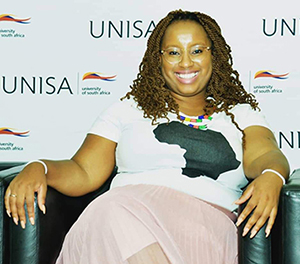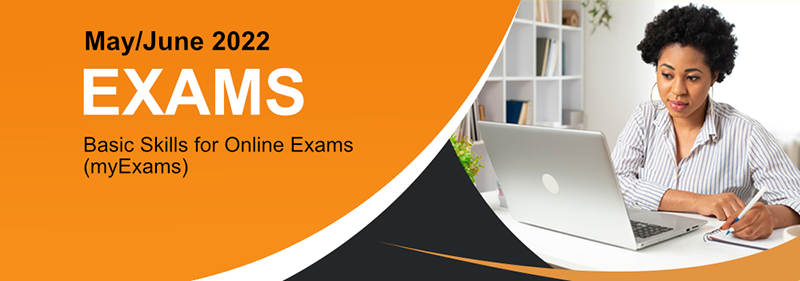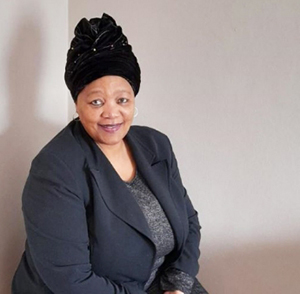News & Events
Strengthening digital transformation for Unisa students

Unisa online exams image
The two years since Unisa switched to online examinations have been challenging, with teething challenges experienced especially at the beginning. However, Phindiwe Kamolane, chairperson of the online examination committee, says it has also been a rewarding experience to work on such a meaningful project.
As part of the government’s regulations relating to the COVID-19 pandemic, universities had to rethink ways of saving the 2020 academic year with the facilitation of online delivery of education. Unisa was among the universities that had to adjust and re-evaluate its teaching methods.
Kamolane’s journey with online examinations started in August 2020. She got an opportunity to plan for October and November 2020 examinations. She says, ‘The May and June 2022 online examination is the institutions seventh examination sitting.’ In addition, Kamolane says the examination processes have since matured from the university’s first online examination sitting with fewer challenges experienced in the administration.

Phindiwe Kamolane (Chair:Online Examination Committee)
Kamolane further explains that the university facilitated the online delivery of education by extending formative and summative assessments. ‘The university responded to the readaptation of its comprehensive open distance eLearning (CODeL) strategy to comply with governments regulations by administering its assessment online. The CODeL strategy embraces a digital transformation that leverages on fourth industrial revolution (4IR) technologies allowing Unisa to become a fit-for-purpose, future-fit and tech-fit organisation in pursuit of the university strategy and 2030 vision.’
‘Over 18 departments and sections are involved in making meaningful contributions to the examination process,’ says Kamolane. Her job is to ensure that all the departments understand their integration and scaffold from other departments in the examination process. The examination committee thus intends to eliminate the silo approach. ‘We make sure that the institution works in unison to administer the examination process.’
In 2022 the university went live with the introduction of the new learning management system. Kamolane says the project spans over five years in which more functionalities will be introduced through customisation of the new system. ‘The project provides an opportunity for both students and academics to provide requirements that are responsive to current challenges and introducing innovative ways of teaching and learning.’
Kamolane says the May and June 2022 examinations are being administered on this new platform. ‘Preliminary feedback from students writing their examinations has been positive,’ she says. ‘Unisa,’ continues Kamolane, ‘is a university in a developing country with students from various backgrounds ranging from the poor, middle and affluent classes, to the marginalised in rural areas plagued by poor or non-connectivity.’

myExams MOOC site banner
She adds that lack of access to electronic devises and many other challenges have had serious implications on the facilitation of CODeL, especially in the context of online examination processes. Thus, an examination steering committee was established to provide strategic direction by operationalising institutional objectives and strategic targets for the online delivery of examination.
It was imperative for the examination steering committee to
- identify gaps and priority areas, and proactively explore potential challenges prior to the commencement of the online examination processes
- inform operational approaches before, during and after the online examination period
- highlight relationships and draw connections across the university, as a means to connect academics and support service departments supporting online examinations
- increase support to academics and students for online examination readiness
- provide opportunities for collaboration among various stakeholders within the university, to ensure the successful running of online examinations
- enhance service delivery using CODeL philosophies for support during online examinations
The examination steering committee concerns itself with ensuring successful planning of the online examination, and ensuring that adequate academic and student support is provided and that the post examination administrative phase is seamless to release results timeously. Currently, the design, development and delivery of online examinations is supported by ICT infrastructure.
‘The examination committee meets weekly over eight weeks for each examination period to track progress against examination activities and decide on examination rules. After each examination period, a post-mortem is held to interrogate what went well and what still needs to be relooked at to ensure a better experience of our students during online examinations.’
Kamolane explains: ‘Given the number of students writing examinations the university plans for the number of concurrent connections that the system can handle. Load testing was performed prior to the sitting to gain confidence that the system will optimally perform during the examination sessions. From 2021, the university adopted college instances in order to avoid overloading of the system due to the number of concurrent connections. Recently, the risk of total system failure or crash was averted.’

Prof Zethu Nkosi (Deputy Executive Dean: CHS)
The increases in participation rates of students during online sitting from venue-based to non-venue-based have been an indicator of the key successes achieved in the administration of examinations. ‘We ensured that students could come into our systems, initiate their examinations, provide their responses and succeed in their examination. This has been my key driver in this project,’ concludes Kamolane.
Through it all, Kamolane survived through the mentorship and support of senior academic leaders. One of Kamolane’s mentors, Professor Zethu Nkosi, who is the College of Human Sciences Deputy Executive Dean, admits that the journey was not easy. Nkosi became part of the online examination project as she was the Tuition Manager of her college. ‘We were thrown in at the deep end. It was new to all of us, both students and academics. We had to provide quick solutions such as training students and academics on the online platform.’
She would liaise with departments across the university on the tools of trade for both academics and students. ‘It was difficult to follow up on students as they were outside my portfolio,’ she says. ‘We had to make quick changes on the type of assessments and removing the pre-requisites with the Directorate of Programme Accreditation and Registration.’
Even though Nkosi was happy that Unisa is practically adhering to its mandate as an open distance online university, she says: ‘The reality hit me hard that we have students from both worlds. Lack of resources kept me awake at night as I knew that our impoverished students will not have access to the exam as they did not have tools of trade.’
*By Lesego Chiloane-Ravhudzulo, Journalist, Department of Institutional Advancement
Publish date: 2022-06-09 00:00:00.0
